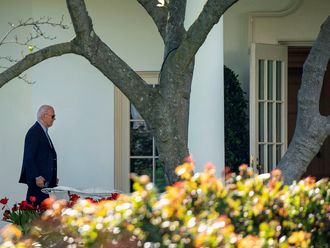For the past 15 years, I’ve worked from my home office — a tiny room sandwiched between my daughters’ bedrooms. My job requires nothing more than a computer, an internet connection and a phone.
I got lucky. I’ve been home for the entirety of my daughters’ lives — always a room or two away, ready to rearrange my day to fit them neatly inside it. I’ve reconfigured my work schedule to align with each stage of their development. At first that meant working during nap time or at night. As they got older, I worked around day care and school hours.
The unexpected consequence of parenting at work and working while parenting is that the two have become inextricably linked. I don’t have a work life and a home life. For me, it’s always been one life.
This has made the nature of the work I do seem much more meaningful than it actually is. Online marketing is not a job that fills my soul with joy. It’s fascinating and challenging and often rewarding, but the best part of my job is the freedom it gives me to be close to my children.
This became critical when my younger daughter, Emily, was born with medical issues that required me to step away from my home office for the better part of a year. It became essential when, after 10 years in business for myself, my older daughter, Ana, was diagnosed with cancer. By then, September 2012, I’d begun delegating some of my work to subcontractors. They took over when the world — and work — stopped for 40 days, and they helped me when my life started again.
I didn’t question the meaning of work during Ana’s illness. Living month to month, or moment to moment, I remained grateful for the flexibility of self-employment. But something within me had begun to shift.
Ana had a liver transplant in February 2013 and went into remission. I resumed a normal work schedule, but I was distracted and depressed. Work didn’t fill my cup the way it once had. The girls were 8 and 11 and much less dependent on me to fill the days with distraction. The hours I spent in front of my computer were less meaningful once I wasn’t required to be one room away from them all the time.
I wanted to work on something that felt permanent. So, at the age of 42, I began writing a children’s fantasy novel. It took me a year to complete, writing in the mornings and evenings when I wasn’t doing paid client work.
Ana’s remission was brief. I finished my book and had begun querying agents when the cancer returned to her abdomen and spread to her lungs. After submitting about 30 queries and receiving a handful of rejections, I gave up on finding an agent, and self-published my book and its sequel (I split the book into two parts). Then I just left them up on Amazon without much fanfare and focused on my children and my job.
Once again, working took on a deeper meaning within the context of parenting. Self-employment enabled me to be present for Ana. I went with her to every hospital visit and scan. I drove her to school when she was well enough to attend. In the last six weeks of her life, I stopped working completely, delegating everything to two subcontractors. From early February through March, though, I continued to write, completing my third book during the quiet times while Ana slept. When Ana needed something, I went to her, driving her to events, taking her out for brief excursions to the store, and being present whenever she requested me. I sat in her room when she called me in — no matter the time — and left when she told me to stop hovering.
Ana died in the spring and I’m still working from the same tiny office that shares a wall with her bedroom. This used to give me comfort. I loved hearing her moving around, listening to music, getting dressed. But now I feel her absence through that wall. Behind me is the wall I share with Emily. She’s 13 and has begun withdrawing in the way that teens do — carving out her own space, telling me to stop bugging her if I poke my head into her room too often.
I am alone in this space between my children, sandwiched between an empty room and a child who is growing out of childhood. Life feels flat. Work feels meaningless — except when I’m writing. But writing doesn’t pay the bills. Not yet anyway.
I know some of what’s going on is about grief. Watching my child suffer over the course of nearly five years — and watching her die — upended my understanding of the universe. Everything feels dull and diminished. I’m not sure any job could be meaningful to me right now.
I finished my third novel a few weeks before Ana died and began, once again, querying agents. I knew I would get rejections. But I’m depleted in every sense of the word. Each rejection is a blow to my soul, driving me deeper into the place of meaninglessness. Even so, I recognise that persevering with the work that I love — even though it fills me with doubt — is the only way to move forward.
In recognising that I’m in the very early stages of grief, I also recognise that I must keep writing.
I must keep working too and, in doing so, find meaning in the simple act of going on.











